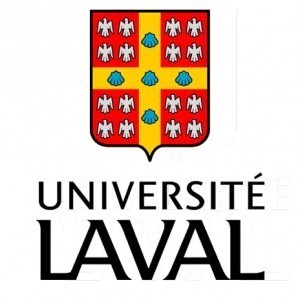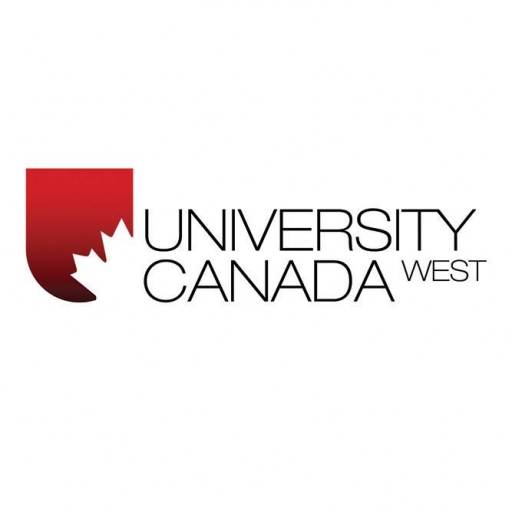Photos of university / #ulaval
The Bachelor of Science in Food Science and Technology at Laval University offers students a comprehensive education in the principles and practices involved in the development, production, and safety of food products. This program is designed to prepare graduates for careers in the food industry, research laboratories, quality assurance, and regulatory agencies. Throughout the course of study, students will explore various subjects including food chemistry, microbiology, processing technologies, sensory analysis, food engineering, and nutrition. The curriculum emphasizes both theoretical knowledge and practical skills, incorporating laboratory work, projects, and internships to provide real-world experience. Students will learn how to analyze food for microbiological, chemical, and physical properties, ensuring products meet safety standards and quality specifications. Additionally, the program covers modern topics such as sustainable food production, food innovation, and regulatory compliance, preparing students to address current challenges in the food sector. Laval University’s state-of-the-art facilities and collaborations with industry partners offer students valuable opportunities for hands-on learning and networking. Graduates of this program will be equipped with a solid foundation in food sciences, enabling them to contribute effectively to the development of safe, nutritious, and innovative food products. The program aims to foster critical thinking, problem-solving skills, and an understanding of ethical issues related to food production and safety. With a focus on scientific rigor and innovation, the Bachelor of Science in Food Science and Technology at Laval University is ideal for motivated students interested in pursuing a dynamic and impactful career in the food industry or related fields.
The Bachelor of Food Science and Technology at Laval University offers a comprehensive education designed to prepare students for the dynamic and vital industry of food production, safety, and innovation. This program combines theoretical knowledge with practical skills, enabling students to understand the scientific principles behind food processing, preservation, and quality control. Throughout the degree, students explore various aspects of food chemistry, microbiology, engineering, and technology, gaining a solid foundation for careers in food manufacturing, research, quality assurance, and regulatory agencies.
The curriculum includes compulsory courses in food chemistry, microbiology, and processing technology, complemented by specialized modules in sensory evaluation, food safety management, and sustainable practices. Students also engage in laboratory work, internships, and research projects, providing hands-on experience in modern food science laboratories and industry settings. Emphasis is placed on ensuring food safety and quality, understanding consumer preferences, and developing innovative food products that meet nutritional and regulatory standards.
In addition to core scientific courses, the program offers opportunities to acquire skills in project management, data analysis, and communication, which are essential for leadership roles in the food industry. Students are encouraged to participate in industry internships or cooperative education programs, fostering professional networking and practical expertise. The program prepares graduates for diverse roles such as food technologists, quality assurance specialists, product development scientists, and regulatory affairs advisors. Graduates are also well-equipped to pursue advanced studies or research in food science and related disciplines.
Laval University’s food science program benefits from research partnerships with industry leaders and access to state-of-the-art laboratories, ensuring students are trained with current technologies and trends. The combination of scientific rigor, practical application, and industry engagement makes this program an excellent choice for students passionate about food science, innovation, and safety. Upon completion, students will possess the knowledge and skills necessary to contribute to the evolving food sector, supporting sustainable practices and ensuring the delivery of safe, nutritious, and high-quality food products worldwide.
The Bachelor of Science in Food Science and Technology at Laval University requires prospective students to meet specific admission criteria, including a completed secondary education with strong performance in science subjects such as biology, chemistry, and mathematics. Applicants must submit official transcripts, proof of language proficiency in French and/or English, and any standardized test scores if applicable. Once admitted, students are required to complete a comprehensive curriculum designed to provide a solid foundation in food chemistry, microbiology, processing, safety, and quality control. The program emphasizes both theoretical knowledge and practical skills, including laboratory work, internships, and research projects. Core courses include Food Chemistry, Food Microbiology, Food Engineering, Sensory Evaluation, and Food Safety Management. Students are expected to undertake courses in quantitative analysis, biochemistry, and nutrition, ensuring a multidisciplinary approach to food science. The program also offers specialization tracks that allow students to focus on areas like product development, food process engineering, and quality assurance. To graduate, students must complete a minimum of 120 credits over the course of the program, including general education requirements, major courses, and elective options. Practical training component consists of internships or co-op placements in industry settings to enhance employability upon graduation. Additionally, students are encouraged to participate in seminars, workshops, and research activities organized by faculty members to stay current with advancements in food technology. The program aims to prepare graduates for careers in food manufacturing companies, quality assurance laboratories, regulatory agencies, and research institutions. Graduation requirements also include the successful completion of a final project or thesis that demonstrates the application of learned concepts to real-world food science challenges. Continuous assessment via exams, laboratory reports, project presentations, and participation in class discussions form the basis of academic evaluation. The program fosters an interdisciplinary learning environment, encouraging collaboration among students and faculty, and emphasizes the importance of sustainability and ethical considerations in the food industry.
The financing of the Food Science and Technology undergraduate program at Laval University is primarily composed of a combination of government funding, student contributions, and potential financial aid options. Tuition fees for domestic students are regulated by the Quebec government and are typically lower than those for international students. These fees are allocated annually and are subject to change based on provincial policies. International students generally pay higher tuition rates, which significantly contribute to the program’s funding structure. In addition to tuition fees, students may access financial assistance through various scholarships and bursaries offered by Laval University, the Quebec government, and external organizations. These financial aid options are often merit-based or need-based and aim to support students in reducing the financial burden associated with higher education. Laval University also offers work-study programs, enabling students to gain practical experience while earning income to offset their studies’ costs. Furthermore, there are loan programs available to eligible students, both through federal and provincial agencies, which help manage the expenses over the duration of the program. The university maintains partnerships with industry stakeholders, which can sometimes provide sponsorships or internships with stipends, further supplementing students’ funding. Research grants and projects may also contribute indirectly to the program's sustainability, especially at the graduate levels. Overall, the financial support structure for the Food Science and Technology program is designed to ensure broad accessibility while maintaining high educational standards, balancing institutional funding with student contributions and external financial aid options.
The Bachelor of Science in Food Science and Technology at Laval University is a comprehensive undergraduate program designed to prepare students for careers in the food industry, research, and academia. The program emphasizes a solid foundation in the fundamental sciences such as biology, chemistry, and physics, combined with specialized courses in food science, food technology, microbiology, nutrition, and quality assurance. Students gain practical experience through laboratory work, internships, and industry projects, allowing them to develop essential skills in food analysis, safety, and production processes.
The curriculum is carefully structured to provide an understanding of the entire food production chain, from raw material procurement to processed food products, focusing on safety, innovation, and sustainability. The program also covers topics such as food legislation, packaging, and marketing, preparing students for the multifaceted nature of the food sector. Laval University collaborates with industry partners, offering students opportunities for co-op placements and internships that enhance their employability and practical knowledge.
Graduates of the program are equipped to work in various sectors, including food manufacturing, quality control laboratories, regulatory agencies, research institutes, and consulting firms. The program also serves as a strong foundation for those interested in pursuing graduate studies or scientific research in food sciences. Laval University’s state-of-the-art facilities, experienced faculty, and a strong emphasis on research ensure students receive a high-quality education aligned with industry standards and scientific advancements. Overall, the Bachelor of Science in Food Science and Technology prepares students to contribute effectively to the evolving challenges of the food industry, such as sustainability, innovation, and food security.



